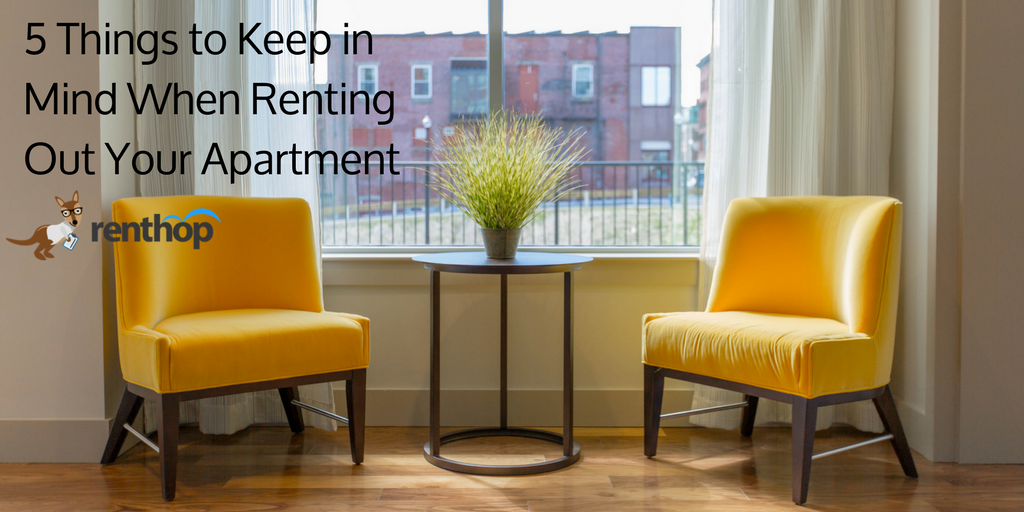While vacation rental is the latest fab, a lot of landlords still prefer long-term rentals. They provide consistent cash flow, and landlords do not have to worry about constant turnover. However, it does not mean that being a landlord is easy; especially for first-time landlords, there are a lot of things to consider. If you’re a first-time landlord looking to rent your own unit, RentHop has your back! Here are some pointers to keep in mind when renting out your apartment:

5 Tips for Renting Our Your Apartment as a First-Time Landlord
When you’re a first-time landlord, there are plenty of things to remember as you’re renting out your apartment.
1. Prepare All Areas
In most cases, the apartment would be vacant and ready for rent. However, it doesn’t mean that it is enough – defects or flaws are extremely obvious when the apartment is empty. Spend some time cleaning the apartment, and invest in home improvements before you put your apartment on the market.
Fresh paint and shiny hardwood floors usually do the trick, and the bathroom is more important than you think. No one wants to be taking a shower in a dim bathroom with a grimy (and germy!) toilet. This is even more important in areas like New York City with old bathrooms. Scrub the toilet and bathtub with white vinegar or your preferred cleaner, and change the lightbulbs, so the entire bathroom looks brighter and cleaner.
2. Advertise Strategically
Now that your apartment is ready for rent, you need to set the price and write a good pitch to attract renters. Once you find the website or platform you’d like to advertise your apartment on, take some time to check out other apartments in your neighborhood. You can advertise your rental on RentHop to find a tenant!
Are they reasonably priced? What amenities do they include? How is your apartment different from theirs? How do other landlords write their apartment descriptions? Benchmarking not only helps you understand what’s out there, but it also gives you a better idea of how you should advertise your apartment. Make sure you include all features and amenities in the ad (or post) and use high-resolution photos.
3. Screen the Renters Carefully
No matter how you find renters, it is vital that you screen each one of them carefully, even some of them are your friends. Ask potential tenants to fill out an application form with the following information:
- Full name,
- Employment (including current and previous ones),
- Salary,
- And references.
Proof of financial status is very helpful. If necessary, you can run a background check – remember to ask potential tenants to sign a credit report authorization form, and conduct the background check through an FCRA-approved consumer reporting agency (CRA). The Consumer Finance Protection Bureau has compiled a list of approved CRAs, and it can be found here.
4. Know the Law and Protect Yourself with a Lease
In most cases, you will be able to find templates of lease agreement online, and unless you have very specific requests, these agreements should be sufficient. However, you should still carefully go over every term in the lease, and check with your local legal support if you have doubts or are unsure about your legal rights as a landlord. Make sure you have everything written down, including the names of all tenants, repairs and maintenance, late fees, and surrender of premises – how they should return the keys, clean the apartment, and whether they need to replace burnt-out light bulbs, as we all know light bulbs can be costly, especially the LED ones!
5. Notify your Mortgage and Insurance Providers
If you are taking out a mortgage for your property, remember to notify your mortgage company that you will be renting out the unit. The mortgage lender has certain rights to the apartment to protect its security interests, and you as a landlord might need to meet additional requirements. You will also need to notify your insurance company, and switch your homeowner insurance policy to a landlord insurance policy. Keep in mind that you should take the insurance cost into consideration when you set the monthly rent, as the premium of a landlord insurance policy is around 25 percent more than a typical homeowner insurance policy.
Editor’s Note: We updated this article to enhance readability.




